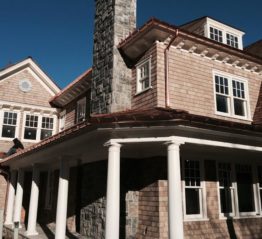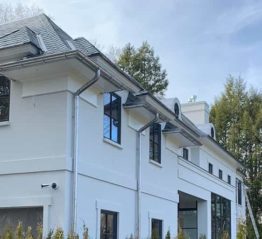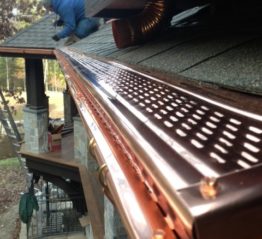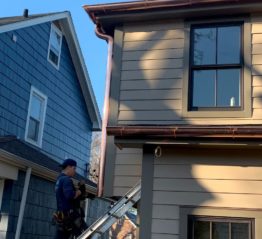Take action before any more snow falls.
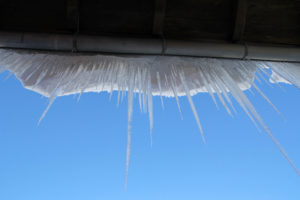
It’s when the snow is melting that the real issues begin. During the warmer, sunnier parts of a winter day, your attic can warm up, melt snow and ice on the roof. That water can seep behind that ice and get under your shingles–sometimes even five or ten feet under your shingles. Eventually, that water drips through the roof into the soffits (the overhangs), walls, and in very unlucky cases, onto your ceiling. You may notice rust spots on drywall fasteners, peeling paint, sagging drywall, and stains around windows and doors.
The time before ice dams form and build up on your roof is the best time to prevent them from happening.
As always, keeping your gutters clear and ensuring you have the correct size gutter will help keep all water flowing off of your roof.
Ice dams form when snow melts off the roof and refreezes near the edge. This happens when your roof is above freezing temperature, which is usually the result of a warm attic. In almost every home, heat escapes through ceilings into the attic and warms the roof directly above it.
The outdoor temperature may be below freezing, but a warm attic can melt the snow. The edge of your roof is not warmed by the attic, and so when the icemelt hits that area, it refreezes, creating a rim of ice. This chunk can grow, trap water behind it and suddenly you have an ice dam.
One easy way to prevent is is to keep your roof cold. This may seem obvious but impossible, so we’ve put together a few ways to best keep your roof from warming too rapidly.
-
Close up attic bypasses. …
-
Bonus: By stopping air leakage to mitigate ice dams, you’ll save energy and reduce both your heating and your air conditioning bills.
-
Measure your attic insulation level. …
-
Add roof and soffit vents. …






